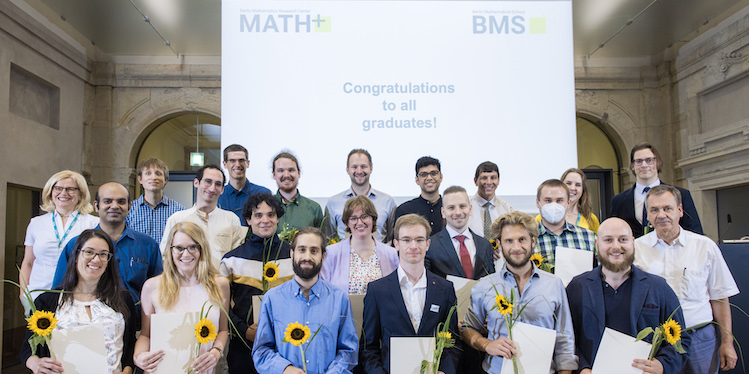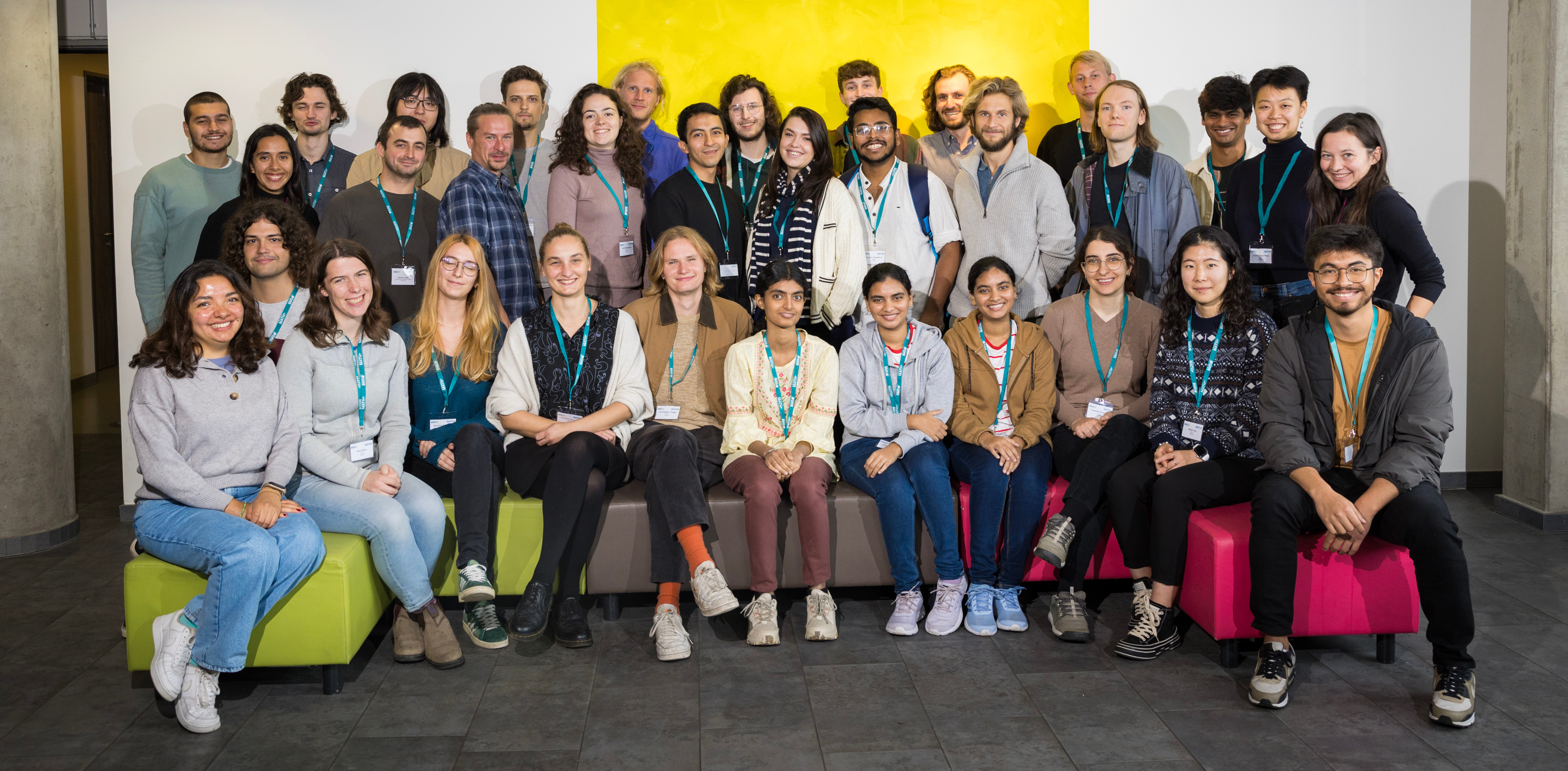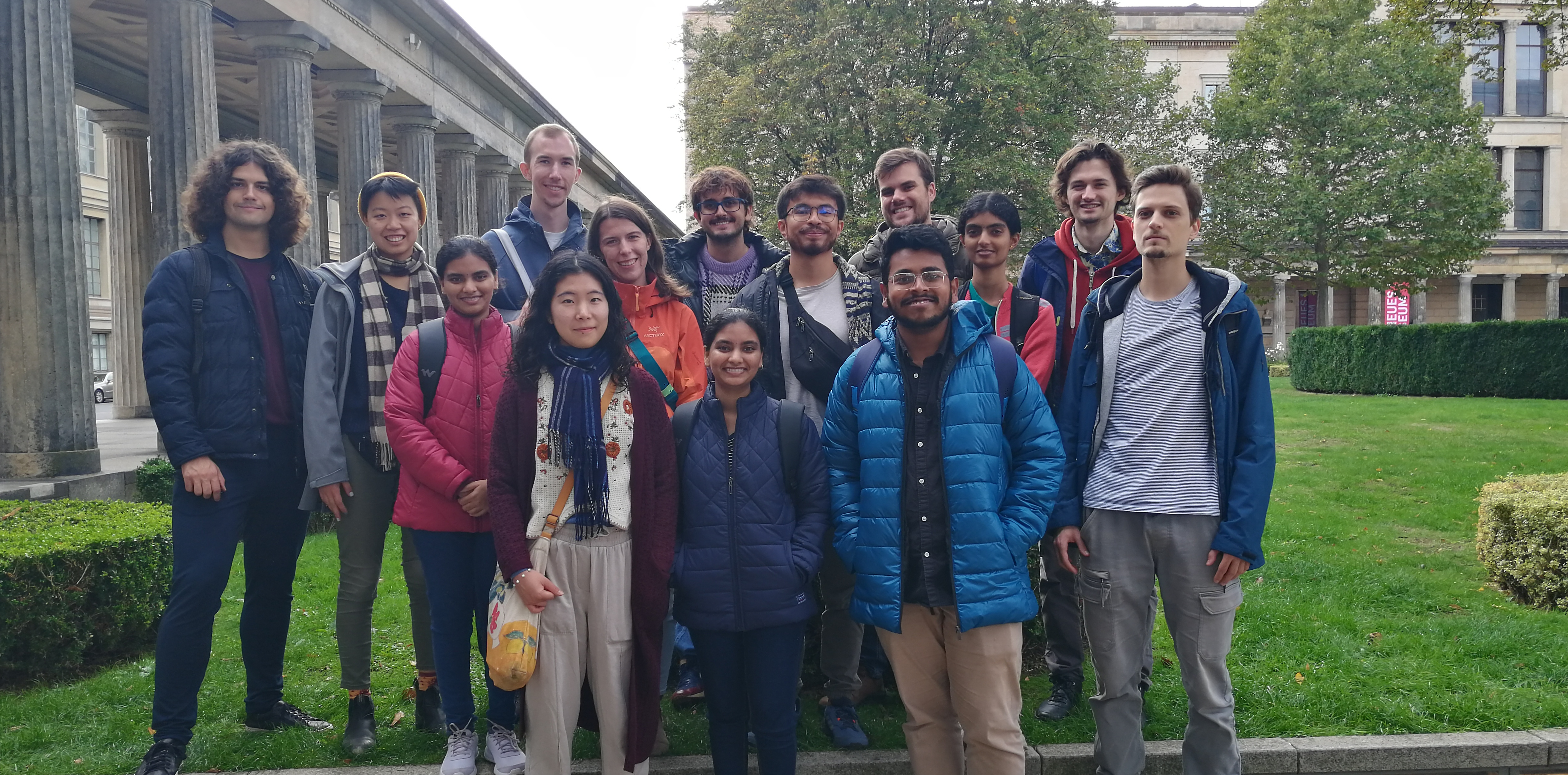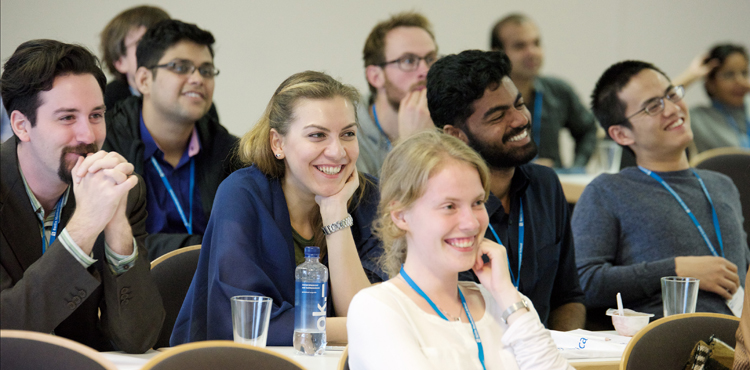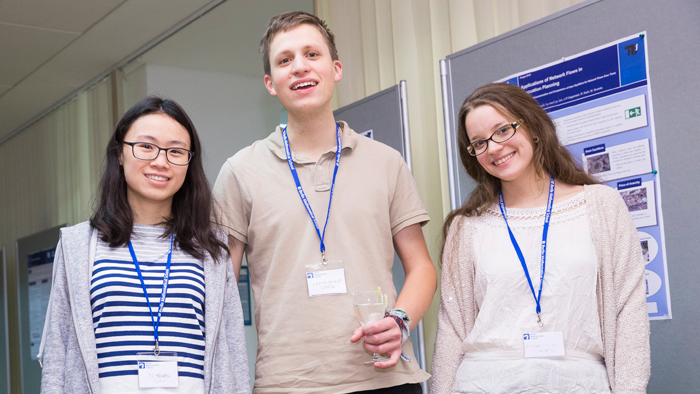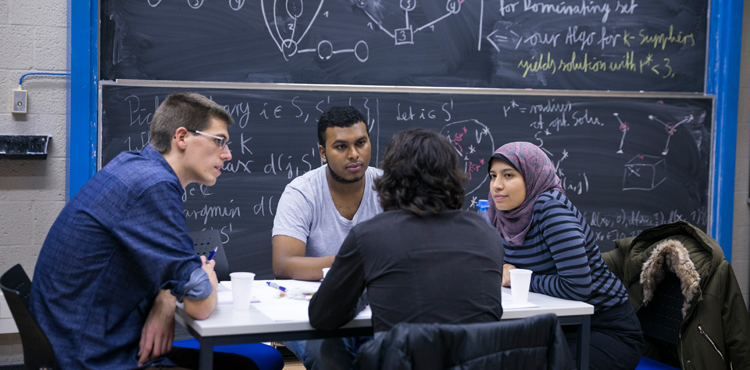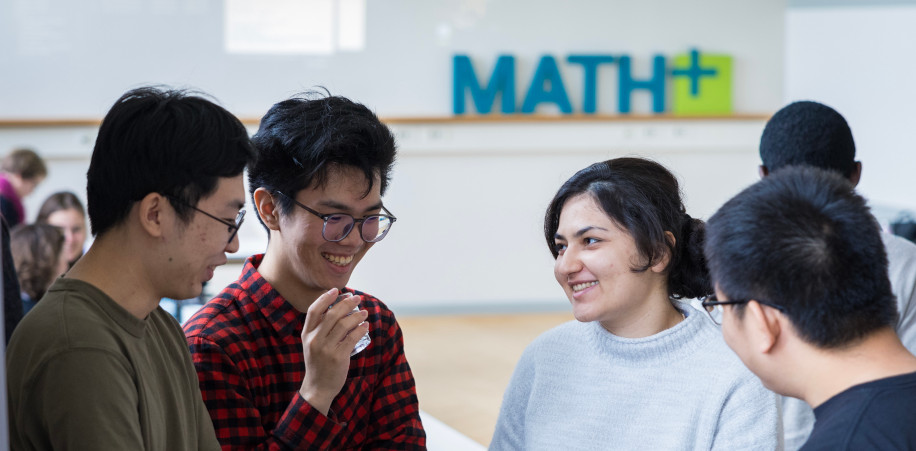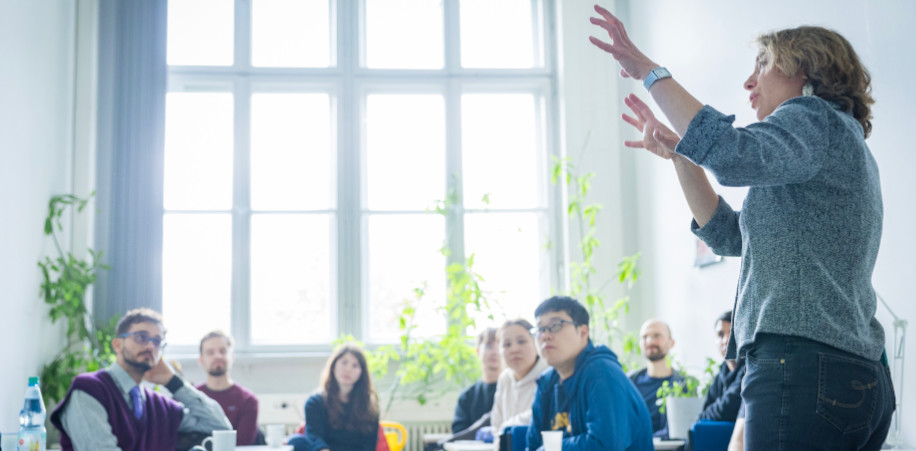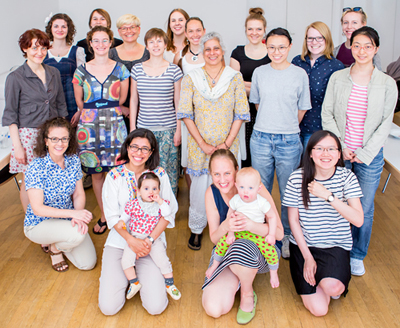
|

Sofía from Colombia

Martha from Uganda

Sophia from the US

Li Li from China

Dragana from Serbia

Alexander from the United Kingdom

Efstathia from Greece

Christoph from Germany

Ignacio from Chile

Todor from Bulgaria
UncategorisedAdvising, Counseling and Mentoring Hilda Geiringer ScholarshipAwarded annually to promising female PhD students to support their mathematical research and in recognition of their outstanding potential. Find more information here.Hanna Neumann FellowshipsAwarded annually to female postdoctoral researchers in recognition of outstanding work. Find more information here.The Gender & Diversity Manager serves as contact person at the BMS for equal opportunity, diversity and student parents. In addition to her duties at the structural level, she provides confidential support in cases of gender-based discrimination as well as sexualized discrimination and violence. Women’s Advancement and Gender Equality at the three Berlin universitiesEvery university in Berlin has their own Women's Representatives and special offers and programs with the goal of achieving a change in the university culture in terms of equal opportunities and diversity.ProFil. Professionalisation of Women in Research and Teaching: Mentoring – Training – Networking The one-year Leadership Programme is aimed at the individual and targeted personal development of female professors within the Berlin University Alliance. TU BerlinThe Coordinating Office for Women’s Advancement and Gender Equality is the central office at the TU Berlin for funding programs, information, further education, and advisory services pertaining to equal opportunities for all genders. It also offers support in case of sexual harassment, discrimination and violence.There are programmes and opportunities for: Students
PhD Students
Moreover, each faculty at TU Berlin has their own Women's and Gender Equality Officer with individual consulting and programs. See here for more information on the offerings at Faculty II. FU BerlinThe Chief Gender Equality Officer is the central office to support the Executive Board and other central boards and committees of Freie Universität in implementing legislative requirements related to gender equity. It also offers support in case of sexual harassment, discrimination and violence.There are programmes and opportunities for: Students
Postdocs
The Margherita-von-Brentano Prize is awarded for outstanding achievement in Gender Studies or equality. At present, the award is granted every two years and has a value of 15.000€. Moreover, the departmental women’s representatives/gender equality officers work toward establishing equal opportunities for women in their respective areas. See here for more information on the offerings at the Department of Mathematics and Computer Science. HU BerlinThe Central Women's Representative is both a representative of interests and an advisor in questions of equal opportunities at Humboldt-Universität zu Berlin. She also offers support in case of sexualised discrimination and violence. PhD Students
Postdocs
Professors
The BMS sets the explicit goal to reach a gender-balanced student body which reflects our society's reality. In addition, the BMS strives for a broad diversity in nationalities and cultures. At least 50% of BMS students come from outside of Germany. The following measures are being taken to achieve these goals: The Gender & Diversity Manager serves as contact person at the BMS for equal opportunity, diversity and student parents. In addition to her duties at the structural level, she provides confidential support in cases of gender-based discrimination as well as sexualized discrimination and violence. FU BerlinDiversity at FUAnti-Discrimination Office ANTI* Referat Queer-feminist peer support (in German) Overview of all advising services at FU (in German) HU BerlinDiversity at HUfirstgen (first generation students) offers students from non-academic backgrounds mentoring and empowerment Queer_Feminismus (in German) TU BerlinAdvisors on Gender DiversityAnti-Discrimination Office Office for Strategic Measures ASTA Queer Referat (in German) ASTA Autonomous Queer Referat (in German) Overview of Advising Services and Complaints Offices Other Offers Support Office for first generation students: Arbeiterkind (in German) https://theresistproject.eu/ (RESIST addresses ‘anti-gender’ politics that imperil equality, gender and sexual diversity, and legitimacy of critical knowledge in contemporary Europe.) Studying abroad is not always an easy decision. This usually means leaving your comfort zone and your familiar country behind and starting anew at a different one. This decision will bring many changes and growth for you in an academic as well as in a personal sense. To help you understand and navigate the new academic aspects in an easier manner, we have gathered here some information about the university system in Germany, which we hope you find useful for a smoother transition into it. Degrees A first crucial aspect to consider, is the structure of the program you are interested in. Usually, a Bachelor's degree in Germany consists of 180 credits spread out over 3 years which includes a thesis work. Once completed, a student can apply for a Master's degree to further continue their education. A Master's degree in Germany usually consists of 120 credits that are meant to be taken in 2 years. If you are considering applying to the Phase I program directly with the BMS, it is relevant to know that you will also be enrolled at one of the three universities in Berlin: FU, HU or TU. This allows you to complete the Phase I program while also completing a Master's degree at the respective university. If you choose to do this, some of the credits of the courses you will be taking will count both towards your Phase I and your master's credit requisites. In this case, you have to keep in mind both the study regulations of the BMS and of the university you are enrolled at. Note that the regulations of each of the universities may vary, so be sure to be informed of the appropriate ones. In addition to the credit requisites, completing a Master's degree at the university, will require you to complete a Master's thesis. This consists of a written work which you must complete under the guidance of your chosen supervisor. For this, you need to talk to a professor you are interested in working with and be sure to discuss with them possible topics for your thesis. Once the degree is completed, a student can choose to further continue their studies by pursuing a doctorate (also known as a PhD). In most countries, this is the highest academic title you can reach with which, in the future, you can apply to become a professor. However, in Germany, if a person has the desire of obtaining a position as a professor, then they need to complete their Habilitation. This can be completed sometime after finishing the doctorate, and this is the highest title you can obtain which then enables you to pursue a professorship. In order to understand the meaning of this higher degree, we have included here a guide to the German titles. Titles In Germany, unlike some other countries, more emphasis is put onto a person's title. The following are some of the titles a person can obtain: ⁃ MSc.: Title obtained after completing a Master of Science ⁃ Dr.: Title obtained after completing a doctoral degree ⁃ Dr. habil.: Title obtained after completing a doctoral degree and a habilitation ⁃ Prof.: Standard title for full professors at German universities The Habilitation attests to the person's individual and independent research and teaching abilities in a certain area. To successfully complete it, you must present and approve both written and oral tasks that conform to the university's regulations. These may come in the form of a habilitation's thesis and/or cumulative work in the area, in addition to presenting a talk in the form of a colloquium or an otherwise public research talk. Only then can a person be hired by a university as a professor. Some take junior professorship (W1) first which is usually limited to 3 or 6 years after which the person's work is evaluated by a committee. Then the professorship might become a full professorship (W2 or W3). Full professorships are always permanent positions. There are very few of them and therefore, in Germany, this is a hard-earned title that comes with extra work but also merits respect, since this constitutes a higher level of commitment to teaching and not everyone is allowed to teach. During the process of completing a Master's degree or pursuing your PhD, you will be communicating with professors on a regular basis. Thus, it is important to understand how to do it properly and exactly how the titles come into play. In order to address a professor, it is good to keep in mind that their full title is (in most cases) Prof. Dr. . Thus, the usual and most formal way to write an email in Germany to a professor is by starting with a greeting such as "Dear Prof. Dr. Last name". In this way you can normally address a professor whom you don’t know. However, using only the highest title (in this case Prof.) is also widely accepted. If you have had enough contact with a professor in Germany for some time, such as your supervisor, it is also an option to ask them directly how you can address them in emails or if they have a preferred way. There are some cases, in which some professors find it an unnecessary formality for their students to address them with the greeting "Prof. Dr." every time and would maybe prefer a different and more casual greeting. Courses Once you become part of a German university, you will start taking courses where the structure may differ from the one you were used to before. In German universities, most courses or seminars are designed in 2 lecture hour blocks. However, each lecture hour consists of only 45 minutes. Thus, if a lecture is said to be from 10-12, then it means that a total of 1 hour and 30 minutes within that time frame will be used for teaching, unless otherwise stated. There is a way to indicate if a course will start at exactly the hour mentioned, or more usually, 15 minutes later. This is done via the following expressions that come from Latin: s.t.: “sine tempore” which means “without time”. This means lectures start sharp: 10 am s.t. = 10:00 am. c.t.: “cum tempore” which means “with time”, and it is also referred to as the “Akademisches Viertel” or the academic quarter-hour. This means lectures start 15 minutes late: 10 am c.t. = 10:15 am. This is the most usual time for lectures and tutorials. There are various formats of courses you can take: If the format of the course is stated as 4+2 it means that it consists of 4 hours of lecture plus 2 hours of a tutorial and similar with 2+2 formatted courses which have 2 hours of lecture and 2 hours tutorial. If the course is a seminar, then most likely, it will consist of a 2-lecture hour block. The courses themselves have certain requirements in general which may also differ from the ones you are used to. For instance, the total grade of your course will come from an exam that is to be presented at the end of the semester and it is normal (for courses of the format 4+2 or 2+2) to have weekly exercise sessions and sheets. For starters, to present the exam, your professor can set some requisites. These might come in the form of participation in the lecture or in the exercise session of the course (when applicable), presenting a certain number of exercises from the exercise sheet in class, or handing out a weekly homework and approving at least 50% of the exercises. Remember that any such condition for presentation of the exam will be informed to you by your professors, and if something is not clear, it is best to speak directly to them. Once you have fulfilled the criteria to present the exam, and you have registered for it, then you will have to present either a written or an oral exam. The decision will depend on your professor and may depend on the number of students taking the course (if there are few students it is considered easier to evaluate them via an oral exam, otherwise a written format will be considered). During an oral exam, you will set a date with your professor and a second evaluator to present it. During the exam you will have access to either a board or some paper in which you can write your answers in the presence of the examiners. For a written exam, you and your fellow students will usually sit together in a room and have a set amount of time to hand in your work. It is always advisable to prepare well in advance for an exam of the specific format you are presenting, since having enough preparation is always a key aspect of performing well in them. Independence and self-management German universities allow and expect a great amount of independence from their students, which in turn, requires them to have good self-management skills with respect to their time and studies. Since you are often not evaluated throughout the semester, it is important not to wait until the exam to ask questions about specific topics of the course you had questions about, or about previous topics discussed in it. It is always a good idea to regularly assess your understanding of the subject in question and participate in the lecture and exercise sessions. You can always decide if you prefer to study alone or with fellow students, in which case regular attendance will provide you with great opportunities to talk to other students and interchange views or ideas. PhD supervision If you decide to apply to the BMS directly to the Phase II, it means you want to start with your doctorate right away at one of the three universities in Berlin. The process of finding a PhD supervisor can be different for everyone. It is usual to continue working with a supervisor who you have worked with on your master's thesis if you also completed this degree in Germany. Keep in mind that your supervisor is a person who you will see and whom you will talk to very regularly, so be sure to not take this decision lightly. Your supervisor should, as closely as possible, match your mathematical interests and as far as possible, your personal ones, too. Each professor has a different way of working and guiding you towards completing your program, so be sure to discuss with them how exactly their supervision process will work and what your expectations are on the short- and long-term work. Please find more information on this here: https://www.math-berlin.de/students/phase-ii-supervision The relationship between a doctoral researcher and their supervisor is an important one. It is unlike any usual employer-employee relationships and requires a lot of great communication and support from both sides. We recommend that any Phase I students who is planning to transfer into Phase II soon or any student who is interested in applying for Phase II of the BMS PhD program to read the following information and recommendations carefully before choosing a faculty member as their doctoral supervisor. Finding the right supervisor for your doctoral dissertation is not just a question of an academic fit. One should also take great care of finding the right person that will match your working style and communicate well to tackle any issues that might arise in this important academic relationship. You can find a list of questions for a first meeting with a (potential) supervisor here. The BMS has created the supervision agreement to be signed by any Phase II student and their supervisor at the start of the doctoral research. It is meant as a starting point for the student and faculty member to discuss their expectations and agree on a work plan and mutual obligations for their academic relationship. It can be used as the basis for the first meeting and individual agreements may be added where the student and supervisor see fit. For many students cultural differences may also play a role in their relationship with their supervisor. It is therefore important that any expectations about frequency of meetings, level of independency and other obligations are clearly communicated in advance and a mediator, e.g. the mentor, is used in cases of conflict. Doctoral students are also expected to thoroughly study the Doctoral Regulations set by the university at which they plan to submit their dissertation. This should be done right at the start of the doctoral research even if one is not enrolling as a PhD student right away to avoid any bad surprises later on. The three Berlin universities have different requirements regarding the duration of the PhD, the formalities of the dissertation and the doctoral defense. Tips by HU Berlin: https://www.hu-berlin.de/de/promovierende/betreuung/promotionskultur If you are a student with a disability or a chronic illness and you need help, advice or just someone to talk to about your situation in person or via mail, you can find information on the offices for students with special needs below: HU Berlin: https://www.hu-berlin.de/en/studies/behinderte TU Berlin: https://www.tu.berlin/en/studienberatung/while-studying/studying-with-impairments
You can apply for academic adjustments if you are having difficulties with exams or courses for medical reasons: FU Berlin (in German): https://www.fu-berlin.de/sites/studium-barrierefrei/beratung/studierende/index.html HU Berlin: https://www.hu-berlin.de/en/studies/behinderte/bewerbung-en#Adjustments
Information an accessibility on the campuses of TU, HU and FU is found here: FU Berlin: https://www.fu-berlin.de/en/sites/studium-barrierefrei/campus-barrierefrei/index.html HU Berlin: https://www.hu-berlin.de/en/studies/behinderte/bewerbung-en#Accessibility TU Berlin: https://www.tu.berlin/en/studienberatung/while-studying/studying-with-impairments/accessibility
|









